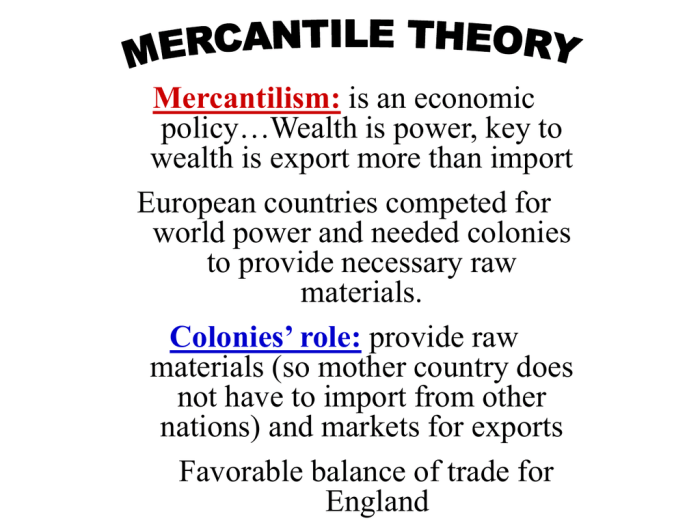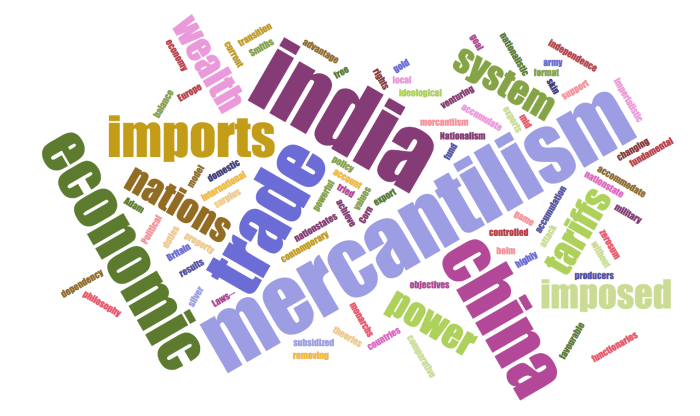Which statement regarding the economic theory of mercantilism is false? Mercantilism, a dominant economic doctrine during the 16th to 19th centuries, emphasized state intervention and the accumulation of wealth and power through international trade. This article analyzes a false statement about mercantilism, explaining its inaccuracy and providing evidence-based reasoning.
Mercantilism played a significant role in shaping global trade and exploration, fostering economic growth while also presenting challenges and limitations.
Mercantilist Principles: Which Statement Regarding The Economic Theory Of Mercantilism Is False

Mercantilism is an economic theory that emphasizes the accumulation of wealth and power through trade and colonialism. It emerged in the 16th century and dominated economic thought until the 18th century. Mercantilists believed that a nation’s wealth was measured by its gold and silver reserves, and that the best way to increase these reserves was to export more goods than it imported.
They advocated for policies that protected domestic industries and promoted exports, such as tariffs, subsidies, and trade monopolies.
Core Tenets of Mercantilism, Which statement regarding the economic theory of mercantilism is false
The core tenets of mercantilism include:
- The belief that a nation’s wealth is measured by its gold and silver reserves.
- The emphasis on increasing exports and decreasing imports.
- The use of tariffs, subsidies, and trade monopolies to protect domestic industries and promote exports.
- The promotion of colonialism as a means of acquiring new sources of wealth and raw materials.
FAQ Overview
What is the primary goal of mercantilism?
The primary goal of mercantilism is to increase the wealth and power of a nation through the accumulation of gold and other precious metals.
How did mercantilism contribute to economic growth?
Mercantilism promoted economic growth by encouraging exports and restricting imports, leading to the development of domestic industries and increased trade.
What were the limitations of mercantilism?
Mercantilism’s limitations included its focus on short-term gains, its neglect of domestic consumption, and its potential to lead to trade wars and conflict.

